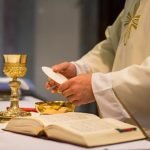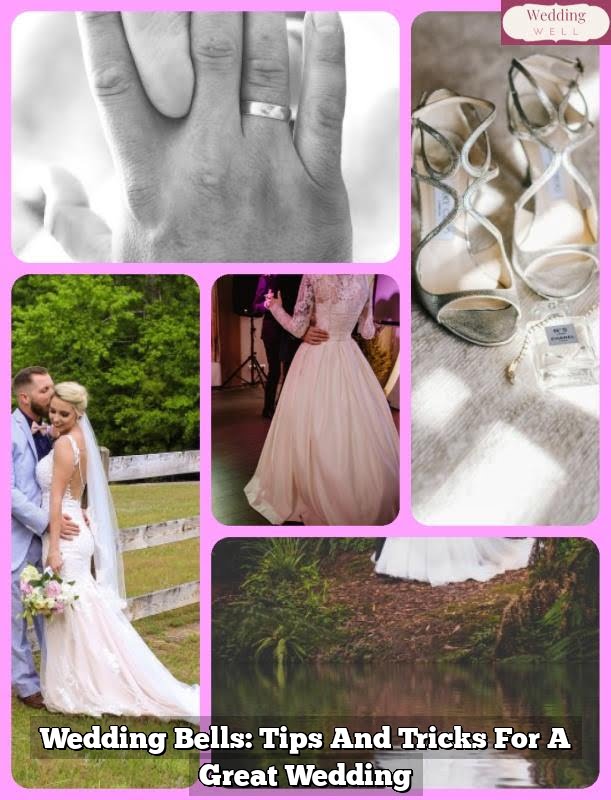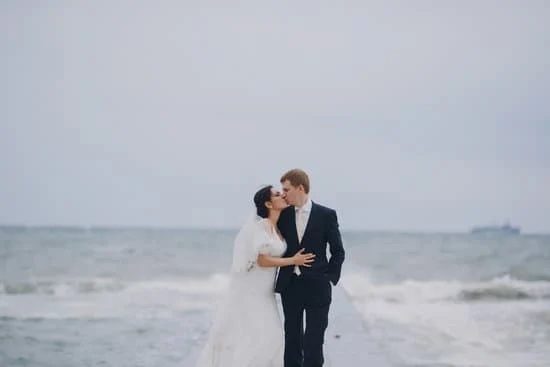Who officiates a wedding is an important decision for couples as they plan their special day. The role of an officiant goes beyond simply leading the ceremony, as they play a crucial part in setting the tone and significance of the event. This article delves into the different aspects of wedding officiants, from the types of officiants available to legal requirements and tips for choosing the right one.
The officiant of a wedding holds a significant role in uniting two individuals in marriage. They are responsible for guiding the couple through one of the most important moments of their lives, and their presence adds a sense of solemnity and tradition to the proceedings. Whether it’s a religious leader, judge, or ordained friend or family member, each type of officiant brings its own unique touch to the ceremony, creating a personalized and memorable experience for everyone involved.
In addition to understanding the significance of an officiant’s role, couples also need to be aware of the legal requirements associated with their choice. This includes obtaining a marriage license and ensuring that their chosen officiant is legally qualified to perform weddings in their state or country. By considering these factors alongside personal preferences and beliefs, couples can make informed decisions about who will oversee their special day.
Types of Wedding Officiants
When it comes to who officiates a wedding, there are several options available to couples. The type of officiant chosen for a wedding often depends on factors such as the couple’s religious or spiritual beliefs, personal preferences, and legal requirements in their location.
One of the most common types of wedding officiants is a religious leader, such as a priest, rabbi, imam, or other clergy member. These individuals are often authorized by their religious organizations to perform weddings and are able to incorporate religious rituals and traditions into the ceremony.
Another option for couples seeking an officiant is a judge or justice of the peace. In many states and countries, judges have the legal authority to solemnize marriages and can provide a secular ceremony for those who prefer not to include religious elements in their wedding. Additionally, some jurisdictions allow ordained friends or family members to officiate weddings. In these cases, individuals can become ordained through various organizations or online ministries and have the legal authority to perform marriage ceremonies.
While there are various options for who can officiate a wedding ceremony, it’s essential for couples to research the specific legal requirements in their location. Each state or country may have different rules regarding who is authorized to perform weddings and what documentation is needed to validate the marriage. By understanding these regulations beforehand, couples can ensure that their chosen officiant is qualified to conduct their ceremony and sign the necessary paperwork.
| Types of Officiants | Description |
|---|---|
| Religious Leaders | Authorized by religious organizations |
| Judges/Justices of the Peace | Legal authority to solemnize marriages |
| Ordained Friends/Family Members | May become ordained through various organizations or online ministries |
Legal Requirements
In the United States, the legal requirements for who officiates a wedding can vary depending on the state. Most states allow religious leaders such as priests, ministers, rabbis, or imams to perform wedding ceremonies.
In addition to religious leaders, judges or justices of the peace are also authorized to officiate weddings in many states. Some states also permit individuals who have been ordained by a recognized religious organization or who have obtained a temporary officiant license to legally perform wedding ceremonies.
To legally solemnize a marriage, an officiant must ensure that all necessary legal paperwork is completed and filed with the appropriate government agency after the ceremony. This paperwork often includes signing and submitting the marriage license to the county clerk’s office within a specified timeframe. It’s important for couples and their chosen officiant to familiarize themselves with local laws and regulations regarding marriage licenses and officiants in order to ensure that their marriage is recognized as valid.
Most countries also have legal requirements governing who can officiate a wedding ceremony. These requirements may include specific qualifications or credentials that an individual must possess in order to legally marry couples. Additionally, some countries may have residency or citizenship requirements for officiants who wish to perform weddings within their borders. Couples planning an international wedding should research the legal requirements for officiants in their chosen destination country well in advance of their wedding date.
| State | Authorized Officiants |
|---|---|
| California | Religious leaders, judges, commissioners of civil marriages |
| New York | Ordained ministers, clergy members, judges, justices of the peace |
| Texas | Judges, retired judges, ordained ministers or priests |
Choosing an Officiant
When it comes to choosing an officiant for your wedding, there are several important factors to consider. Couples should take into account considerations such as religious beliefs, personal connection, and ceremony style in order to find the right officiant for their special day.
Religious Beliefs
For couples with strong religious beliefs, it is essential to find an officiant who can honor and respect those beliefs. Whether you are looking for a traditional religious ceremony or a more secular approach, it is important to discuss your specific requirements with potential officiants. Be open and honest about your expectations for the ceremony and make sure that the officiant is comfortable accommodating your needs.
Personal Connection
The relationship between the couple and the officiant is a crucial aspect of the wedding ceremony. It’s important to choose an officiant who takes the time to get to know you as a couple and can personalize the ceremony to reflect your relationship. Meeting with potential officiants beforehand can help you determine if there is a genuine connection and mutual understanding, which is essential for creating a meaningful and personalized ceremony.
Ceremony Style
Every couple has their own vision for their wedding ceremony, whether it’s traditional, modern, intimate, or grand. When choosing an officiant, consider the style of ceremony that you envision for your special day. Some officiants may have a specific style or approach that aligns with your preferences, while others may be more flexible in adapting to your desired tone and atmosphere.
Ultimately, finding the right wedding officiant is a deeply personal decision that involves thoughtful consideration of various factors. By taking into account religious beliefs, personal connection, and ceremony style, couples can ensure that they choose an officiant who will create a memorable and meaningful wedding ceremony experience for them.
Officiant Duties
Preparing the Script
One of the primary responsibilities of an officiant before the wedding ceremony is to prepare the script for the event. This involves working closely with the couple to understand their vision for the ceremony, including any specific traditions or elements they wish to incorporate.
The script typically includes the order of events, any readings or rituals, as well as the wording for important parts of the ceremony such as vows and ring exchange. Officiants may also offer guidance and suggestions based on their experience and expertise.
Leading the Ceremony
During the wedding ceremony itself, the officiant plays a crucial role in leading and guiding the proceedings. This includes setting the tone for the ceremony, ensuring that everything runs smoothly according to plan, and providing direction to both the couple and guests.
Additionally, officiants are responsible for delivering any spoken parts of the script, such as welcoming remarks, readings, vows, and pronouncing the couple as married. A skilled officiant will help create a warm and welcoming atmosphere that allows everyone present to fully experience and appreciate this special moment.
Signing the Marriage License
After officiating a wedding ceremony, there are still responsibilities that an officiant must handle. One of these post-ceremony duties is signing the marriage license along with witnesses. It is essential that this legal document is completed accurately and promptly to ensure that the marriage is legally recognized.
Officiants should be knowledgeable about state or local laws regarding marriage licenses to avoid any potential complications. This final step officially seals all that has taken place during their time spent with those getting married during their wedding day.
Customizing the Ceremony
Couples have the opportunity to customize their wedding ceremony in a way that reflects their unique love story and personal beliefs. With the help of their chosen officiant, they can add special elements to make the ceremony truly meaningful and memorable. Here are some ways in which couples can personalize their wedding ceremony:
- Readings: Couples can choose meaningful poems, passages from literature, or religious texts to be read during the ceremony. These readings can be done by family members, friends, or the officiant themselves. It’s a great way to incorporate words of wisdom and love into the ceremony.
- Rituals: There are various rituals that couples can include in their ceremony to symbolize their union. This could include lighting candles together, a sand blending ceremony, or a handfasting ritual. These rituals add depth and symbolism to the wedding proceedings.
- Personal Vows: One of the most touching ways to personalize a wedding ceremony is by writing and reciting personal vows. Couples can express their love and commitment in their own words, making the moment especially heartfelt and authentic.
By working closely with their officiant, couples can create a wedding ceremony that authentically reflects who they are as individuals and as a couple. Personalizing these elements adds emotional significance and ensures that the ceremony is truly unique to them.
Cultural and Religious Traditions
When it comes to weddings, cultural and religious traditions play a significant role in shaping the ceremony and creating a meaningful experience for the couple and their loved ones. Officiants, who are responsible for leading the wedding ceremony, have the unique opportunity to incorporate various customs and rituals that hold significance for the couple. Here are some examples of cultural and religious traditions that officiants can incorporate into a wedding ceremony:
- Unity Rituals: Many couples choose to include unity rituals as part of their wedding ceremony, symbolizing the coming together of two individuals to form a new partnership. Examples of unity rituals include lighting a unity candle, mixing different colored sands into one container, or participating in a handfasting ceremony. These rituals not only add depth and meaning to the ceremony but also provide beautiful visual symbolism for the couple and their guests.
- Blessings: Blessings are an important part of many wedding ceremonies, especially those with religious or spiritual significance. Officiants can incorporate blessings from various faith traditions, such as Christian prayers, Jewish blessings over wine or bread, or Native American sacred chants. Blessings serve as a way to invoke divine favor and seek guidance for the couple’s future together.
- Prayers: For couples with strong religious beliefs, incorporating prayers into their wedding ceremony is a powerful way to invite spiritual presence and support on their special day. Officiants can lead communal prayers or invite family members and friends to offer their own prayers for the couple’s union. Including prayers in the ceremony acknowledges the importance of faith in the couple’s relationship and invites communal support from those gathered to witness their marriage.
By working closely with their chosen officiant, couples can explore different cultural and religious traditions that resonate with them and create a wedding ceremony that reflects their beliefs, values, and personal history. Officiants who are open-minded and knowledgeable about various customs can help couples navigate this process while honoring their unique heritage and spiritual backgrounds.
Tips for a Successful Ceremony
In conclusion, the role of the officiant in a wedding is integral to ensuring a smooth and meaningful ceremony. Whether it is a religious leader, judge, or ordained friend or family member, the officiant plays a crucial role in guiding the couple through their marriage vows and pronouncing them as officially married. It is important for couples to carefully consider who officiates their wedding in order to ensure that their beliefs and values are reflected in the ceremony.
When choosing an officiant, couples should take into account their personal connection with the potential officiant, as well as their religious or spiritual beliefs. It is also essential for couples to communicate openly with their chosen officiant about their expectations for the ceremony, including any personalized touches they wish to include. Additionally, rehearsal tips and handling unexpected challenges can also contribute to a successful ceremony.
Ultimately, the right officiant can help create a memorable and meaningful wedding ceremony that reflects the couple’s unique love story. By working closely with their chosen officiant and following these tips for a successful ceremony, couples can ensure that their special day is a true reflection of their commitment to each other.
Frequently Asked Questions
What Do You Call Someone Who Officiates a Wedding?
Someone who officiates a wedding is typically called a wedding officiant or celebrant. This person has the legal authority to oversee and conduct the marriage ceremony, ensuring that all legal requirements are met.
Who Officiates a Traditional Wedding?
In a traditional wedding, the officiant can be a religious leader such as a priest, rabbi, minister, or imam, depending on the couple’s faith tradition. Additionally, some couples choose to have a civil ceremony officiated by a judge or justice of the peace.
Who Can Legally Marry a Couple in Texas?
In Texas, a couple can be legally married by either a licensed minister, religious leader, judge, justice of the peace, or any authorized person who is allowed to conduct wedding ceremonies. It’s important to ensure that whoever officiates the wedding is legally permitted to do so in the state of Texas.

Welcome to my blog about home and family. This blog is a place where I will share my thoughts, ideas, and experiences related to these important topics. I am a stay-at-home mom with two young children. I hope you enjoy reading it! and may find some helpful tips and ideas that will make your home and family life even better!





